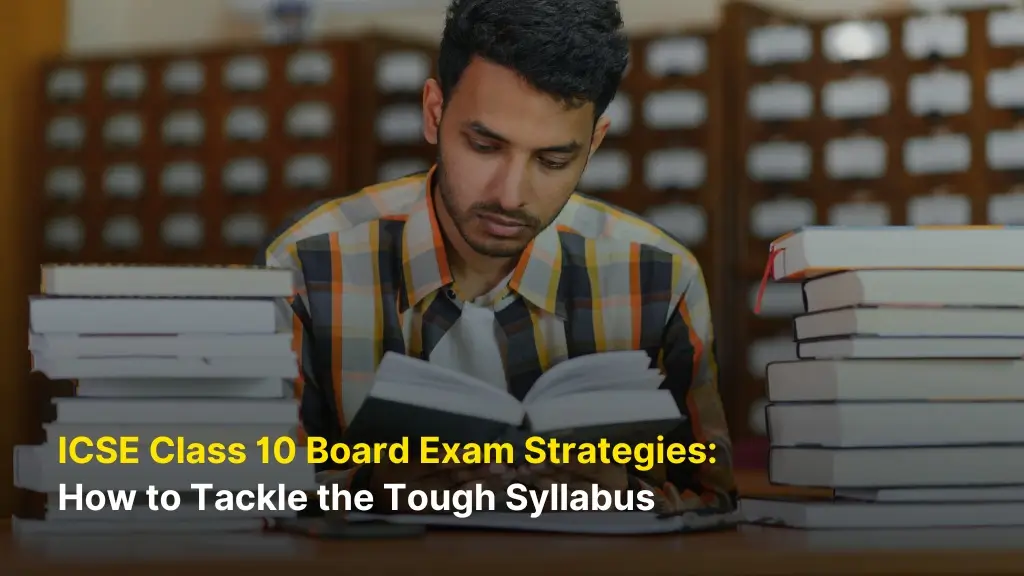The ICSE Class 10 Board Exam is known for its rigorous syllabus and detailed marking scheme, making it a challenge for many students. However, with the right strategies, even the toughest syllabus can be mastered. At Suresh Dani Classes (SDC), students are guided to adopt effective preparation methods, ensuring conceptual clarity and higher scores.
Start with a Complete Syllabus Analysis
The first step in any ICSE Class 10 strategy is understanding the syllabus thoroughly. Students should break the syllabus into smaller, manageable sections and identify high-weightage topics. Subjects like Mathematics, Science, and English Literature often require extra practice. At SDC’s 11th and 12th Coaching Classes in Andheri, mentors recommend creating a “priority list” for each subject, helping students allocate study hours effectively.
Focus on Conceptual Understanding
ICSE exams reward conceptual clarity over rote memorization. In Science, it’s not enough to memorize formulas — students must understand the reasoning behind reactions. Similarly, in Mathematics, understanding methodology is more important than memorizing solutions. Through interactive learning, SDC’s ICSE Board Coaching in Mumbai encourages problem-solving and helps students strengthen their foundations.
Divide Study Time Strategically
A common mistake is spending equal time on all topics. To tackle the tough syllabus efficiently, divide study hours based on difficulty and mark weightage. For instance:
- Allocate more time to high-weightage chapters.
- Dedicate shorter periods to easier topics for quick revision.
At SDC’s ICSE Coaching Classes, students also learn time management techniques that prevent burnout while covering every subject systematically.
Regular Practice and Sample Paper Analysis
Practicing past ICSE papers and sample papers is one of the most effective methods. It helps students get familiar with question formats, frequently asked topics, and time constraints. At SDC’s ICSE Coaching in Andheri, curated papers and guided solutions give students the right direction for improvement.
Effective Revision Techniques
Revision should be active, not passive. Summarizing chapters in short notes, flowcharts, or mind maps reinforces memory. For English Literature, solving essays and practicing long answers can help. At SDC’s ICSE Classes in Mumbai, mentors encourage revision journals that students can revisit quickly before exams.
Time Management During Exams
Success in ICSE exams depends on managing the 3 hours wisely. Start with questions you are most confident about to maximize marks early on. SDC trains students to simulate exam conditions, boosting both speed and accuracy.
Mental Wellness and Short Breaks
Preparing for ICSE can be stressful. Students must balance study with adequate breaks, exercise, and relaxation to avoid burnout. At SDC, teachers emphasize stress management techniques to ensure students stay calm, focused, and productive.
Peer Discussions and Group Learning
Group discussions and peer problem-solving can accelerate learning, especially in subjects like History, Geography, or Economics. SDC organizes collaborative learning sessions, encouraging students to clarify doubts and share strategies.
Regular Self-Assessment
Self-assessment tests help students track their preparation journey. Weekly tests at SDC’s ICSE Coaching Centre in Andheri highlight weak areas and provide clear insights into exam readiness.
Key Takeaways
- Analyze the syllabus and focus on high-weightage chapters.
- Prioritize conceptual understanding over memorization.
- Practice sample papers and past papers regularly.
- Use active revision methods like mind maps and short notes.
- Maintain time management and mental wellness.
- Assess yourself consistently and adjust strategies accordingly.
By implementing these strategies with the expert guidance of Suresh Dani Classes, students can confidently conquer the ICSE Class 10 syllabus. With structured coaching, smart revision, and focused practice, success in the board exams becomes a lot more achievable.






